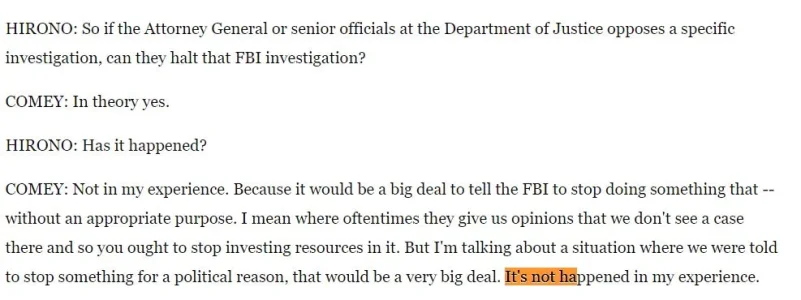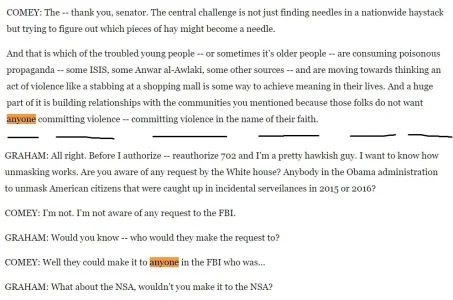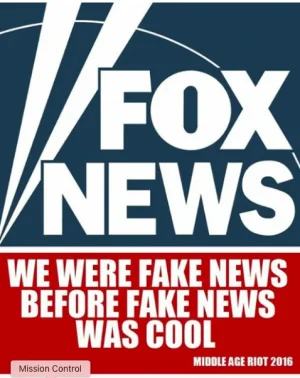Under the law, Comey is required to immediately inform the Department of Justice of any attempt to obstruct justice by any person, even the President of the United States. Failure to do so would result in criminal charges against Comey. (18 USC 4 and 28 USC 1361) He would also, upon sufficient proof, lose his license to practice law.
So, if Comey believed Trump attempted to obstruct justice, did he comply with the law by reporting it to the DOJ? If not, it calls into question whether the events occurred as the Times reported it.
Obstruction requires what’s called “specific intent” to interfere with a criminal case. If Comey concluded, however, that Trump’s language was vague, ambiguous or elliptical, then he has no duty under the law to report it because it does not rise to the level of specific intent. Thus, no crime.
There is no evidence Comey ever alerted officials at the Justice Department, as he is duty-bound to do. Surely if he had, that incriminating information would have made its way to the public either by an indictment or, more likely, an investigation that could hardly be kept confidential in the intervening months.
Comey’s memo is being treated as a “smoking gun” only because the media and Democrats, likely prompted by Comey himself, are now peddling it that way.
Comey will soon testify before Congress about this and other matters. His memo will likely be produced pursuant to a subpoena. The words and the context will matter.
But by writing a memo, Comey has put himself in a box. If he now accuses the President of obstruction, he places himself in legal jeopardy for failing to promptly and properly report it. If he says it was merely an uncomfortable conversation, he clears the president of wrongdoing and sullies his own image as a guy who attempted to smear the man who fired him.
Either way, James Comey comes out a loser. No matter. The media will hail him a hero.
After all, he gave them a good story that was better than the truth.
- Greg Jarrett



